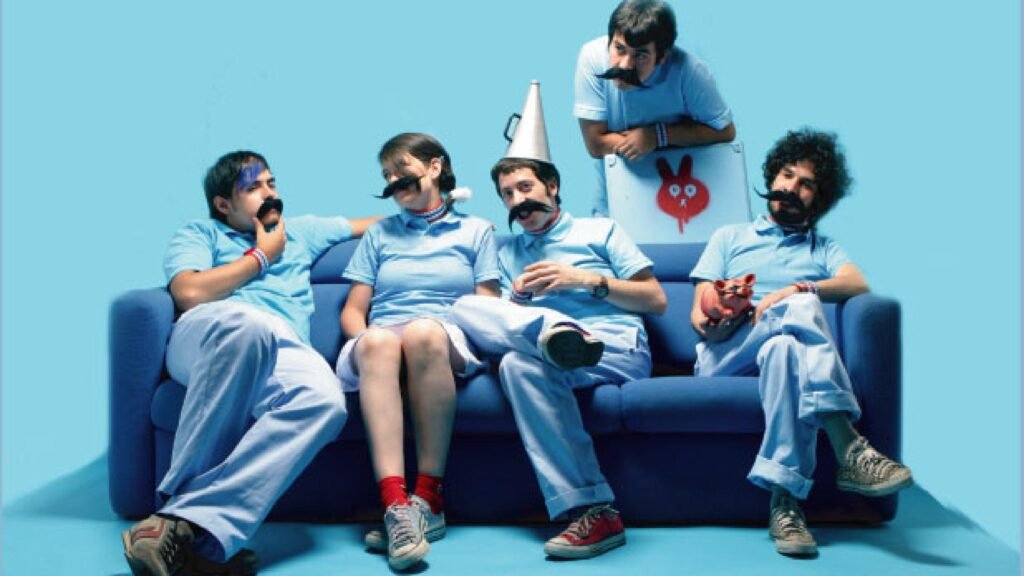Soap operas, often referred to as “Soaper TV,” have carved out a unique space in the entertainment world. These long-running serialized dramas, known for their emotional depth, gripping storylines, and relatable characters, have been captivating audiences for decades. But what exactly makes Soaper TV so special? In this article, we’ll explore its origins, characteristics, appeal, and its evolution into the modern era.
Soaper TV is more than just a genre; it’s a reflection of societal values, relationships, and struggles. From its early beginnings on radio to its transition to television and now digital platforms, soap operas have continuously evolved to stay relevant. Whether it’s the heart-stopping cliffhangers or the emotional rollercoasters, Soaper TV offers something that other genres often can’t match: an intimate connection with its audience. Let’s dive deeper into this fascinating world.
The Origins and Evolution of Soaper TV
Soap operas originated in the early 20th century as radio dramas, primarily targeting housewives. Sponsored by soap companies, they earned the name “soap operas.” These early shows provided an escape from the monotony of daily life, weaving tales of love, betrayal, and ambition. As television gained popularity in the mid-20th century, soap operas transitioned to the small screen, bringing their compelling stories to a wider audience.
One of the first TV soap operas, Guiding Light, debuted in 1952 and remained on air for an impressive 72 years. This marked the beginning of an era where soap operas became a staple of daytime television. Shows like Days of Our Lives and General Hospital became cultural phenomena, drawing millions of viewers daily.
Over the decades, soap operas expanded their scope, addressing issues like infidelity, family feuds, and even controversial topics like mental health and racism. This evolution not only kept them relevant but also allowed them to resonate with new generations. Today, while traditional soap operas still exist, the genre has embraced digital platforms and streaming services, ensuring its stories reach audiences wherever they are.
The Defining Traits of Soaper TV
Soaper TV is defined by its unique structure and storytelling style. Unlike most TV shows, soap operas don’t follow a seasonal format. They air continuously, sometimes for decades, creating a world where characters grow, evolve, and experience life in real-time alongside the viewers.
One hallmark of Soaper TV is its reliance on cliffhangers. These moments—whether it’s a shocking revelation, a surprise return of a presumed-dead character, or an unforeseen betrayal—keep viewers hooked and eager for the next episode. The narratives are also deeply character-driven, focusing on interpersonal relationships, emotional conflicts, and family dynamics.
Themes in Soaper TV often revolve around universal human experiences like love, betrayal, and forgiveness. While these themes may seem repetitive, their presentation is anything but. Each storyline is intricately woven, making the familiar feel fresh. Furthermore, soap operas are known for their expansive cast, ensuring a variety of subplots and characters to keep the audience engaged.
Why Soaper TV Captivates Viewers
The enduring appeal of Soaper TV lies in its ability to connect emotionally with its audience. At its core, these shows are about people—flawed, relatable individuals navigating life’s challenges. This emotional resonance is a major reason why viewers remain loyal to their favorite soaps for years, even decades.
Another factor is the escapism Soaper TV provides. For many, tuning in offers a break from the monotony of everyday life. The over-the-top drama, larger-than-life characters, and impossible plot twists create a world that’s both entertaining and cathartic. It’s a chance to lose oneself in someone else’s problems, no matter how outrageous they may seem.
Soaper TV also fosters a sense of community. Fans bond over their shared love for a show, discussing theories, favorite moments, and even the occasional frustration with a storyline. This sense of belonging amplifies the genre’s appeal, making it more than just entertainment—it’s a shared experience.
The Modern Face of

While the traditional format of Soaper TV remains, the genre has adapted to the changing media landscape. Streaming platforms like Netflix and Hulu have embraced serialized storytelling, introducing a new generation to the appeal of long-form drama. Shows like Bridgerton and The Crown, though not traditional soap operas, borrow heavily from the genre’s tropes.
Modern soap operas have also diversified their storylines, incorporating contemporary issues like LGBTQ+ representation, social justice, and mental health. This evolution has allowed them to stay relevant and attract younger viewers. Moreover, the availability of entire seasons online enables binge-watching, a format that aligns well with today’s viewing habits.
Another significant change is the global reach of Soaper TV. Telenovelas from Latin America, Indian serial dramas, and Korean dramas have introduced the world to culturally rich storytelling. These shows, while rooted in local traditions, resonate universally, proving that the essence of Soaper TV transcends borders.
The Cultural and Economic Impact of
Soaper TV has left an indelible mark on culture and society. It has often been at the forefront of addressing social issues, breaking taboos, and sparking conversations. From All My Children tackling AIDS awareness to Coronation Street portraying working-class struggles, soap operas have used their platform to educate and inspire.
Economically, soap operas are a powerhouse. They generate significant revenue through advertising, syndication, and merchandise. Moreover, they provide steady employment for actors, writers, and crew members, some of whom have launched successful careers from their work in soaps.
The influence of Soaper TV extends beyond the screen. It has shaped how we perceive love, family, and morality. While some critics dismiss it as melodramatic or unrealistic, its ability to reflect and shape societal norms cannot be denied. Soaper TV is not just entertainment; it’s a mirror to our collective experiences.
The Future of
As technology and viewer preferences evolve, so too will Soaper TV. One potential avenue is interactive storytelling, where viewers can influence plotlines or character decisions. Virtual reality could also offer immersive experiences, allowing fans to step into the world of their favorite shows.
However, challenges remain. The rise of short-form content and competition from other genres may pose threats to the traditional soap opera format. Additionally, maintaining audience loyalty in a world with endless entertainment options will require innovation and creativity.
Despite these hurdles, the essence of Soaper TV—its emotional depth and character-driven storytelling—will likely endure. As long as there are stories to tell and emotions to explore, Soaper TV will find a way to captivate audiences, just as it has for nearly a century.
Conclusion
Soaper TV is more than just a genre; it’s a cultural institution. Its ability to evolve while staying true to its core values has ensured its longevity. From its early days as radio dramas to its dominance on television and its modern presence on digital platforms, Soaper TV has continuously adapted to the times.
At its heart, Soaper TV is about connection—between characters and their struggles, and between the shows and their audiences. It’s a testament to the power of storytelling and its ability to bring people together. As we look to the future, one thing is certain: Soaper TV will continue to entertain, inspire, and resonate with viewers for generations to come.



